
Vertiwell 16 Tablet
Manufacturer
Everwell Pharma Pvt Ltd
Salt Composition
Betahistine (16mg)
Key Information
Short Description
Vertiwell 16 Tablet is used to prevent and treat a disorder of the inner ear known as Ménière’s disease, which includes symptoms such as dizziness, ringing in the ears, and loss of hearing.
Dosage Form
Tablet
Introduction
Vertiwell 16 Tablet should be swallowed whole with water and taken at the same time(s) each day to get the most benefit. Your doctor will decide what is the correct dose to relieve your symptoms and how often you need to take it. You may need to take this medicine for several months and you should take it for as long as prescribed by your doctor, even if you start feeling better. The most common side effects include headache, feeling sick, and indigestion (dyspepsia). You may also get stomach pain and bloating. Taking the medicine with food can help reduce stomach problems.
Directions for Use
Take this medicine in the dose and duration as advised by your doctor. Swallow it as a whole. Do not chew, crush, or break it. Vertiwell 16 Tablet may be taken with or without food, but it is better to take it at a fixed time.
How it works
Vertiwell 16 Tablet is a histamine analog. It works by improving the blood flow in the inner ear which reduces the pressure of excess fluid there. Excess fluid can send signals to the brain causing nausea, dizziness, or spinning sensations (symptoms of Ménière's disease). Vertiwell 16 Tablet additionally dampens down the nerve signals sent from the inner ear to the brain relieving the symptoms of Ménière's disease.
Quick Tips
You have been prescribed Vertiwell 16 Tablet to relieve vertigo (dizziness), hearing problems, and tinnitus (noise in the ear) associated with Ménière's disease. It can only decrease the number and severity of attacks but may not completely stop them. Taking it with food can help reduce stomach problems. Take it at the same time each day to maintain a steady amount of the medicine in your body. Inform your doctor if you have a history of stomach ulcer, asthma, or low blood pressure.
Related Medicines
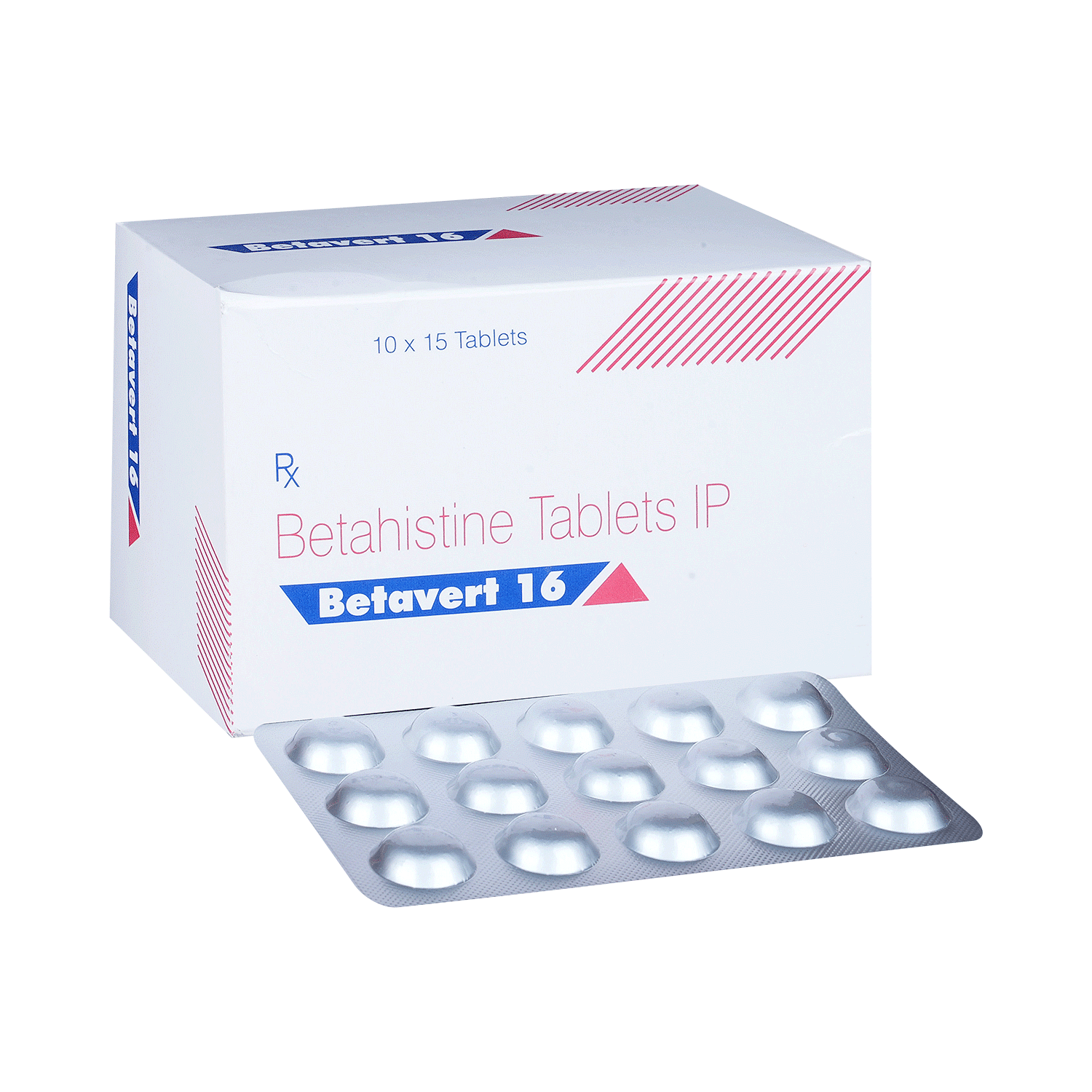
Betavert 16 Tablet
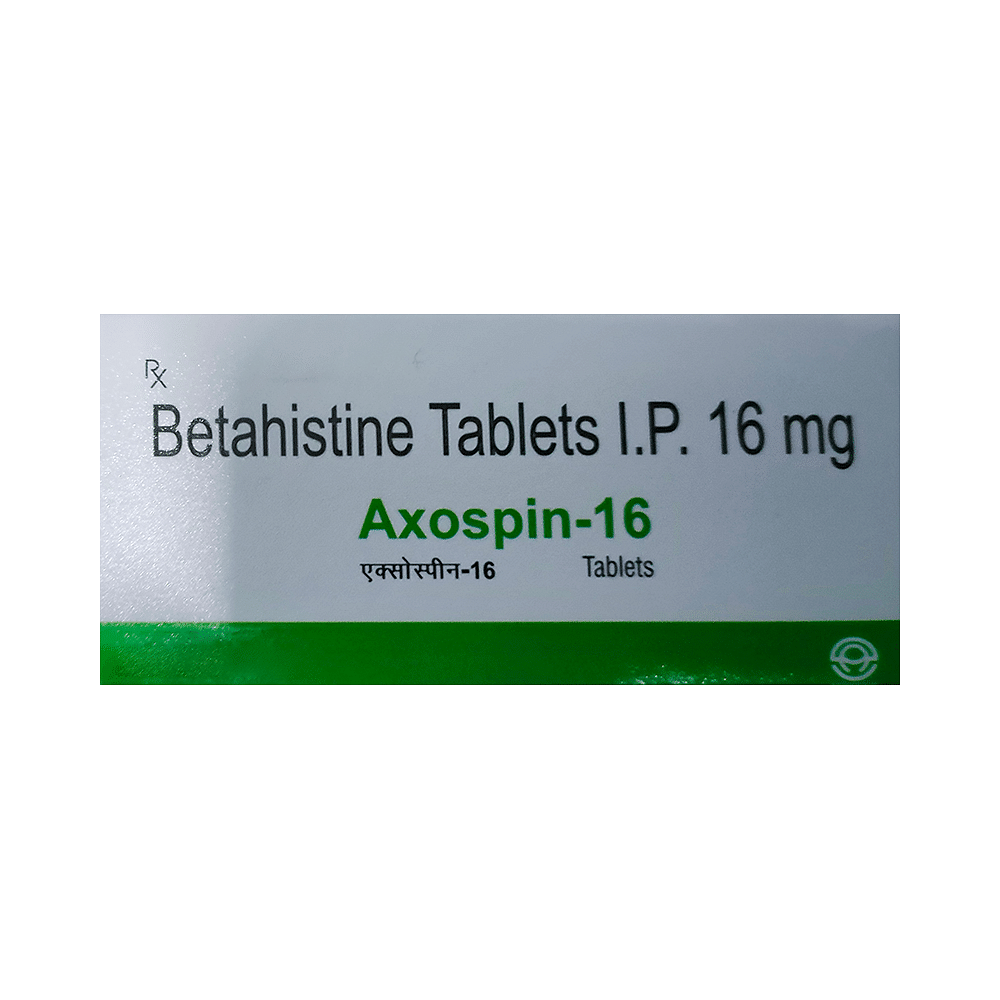
Axospin 16 Tablet
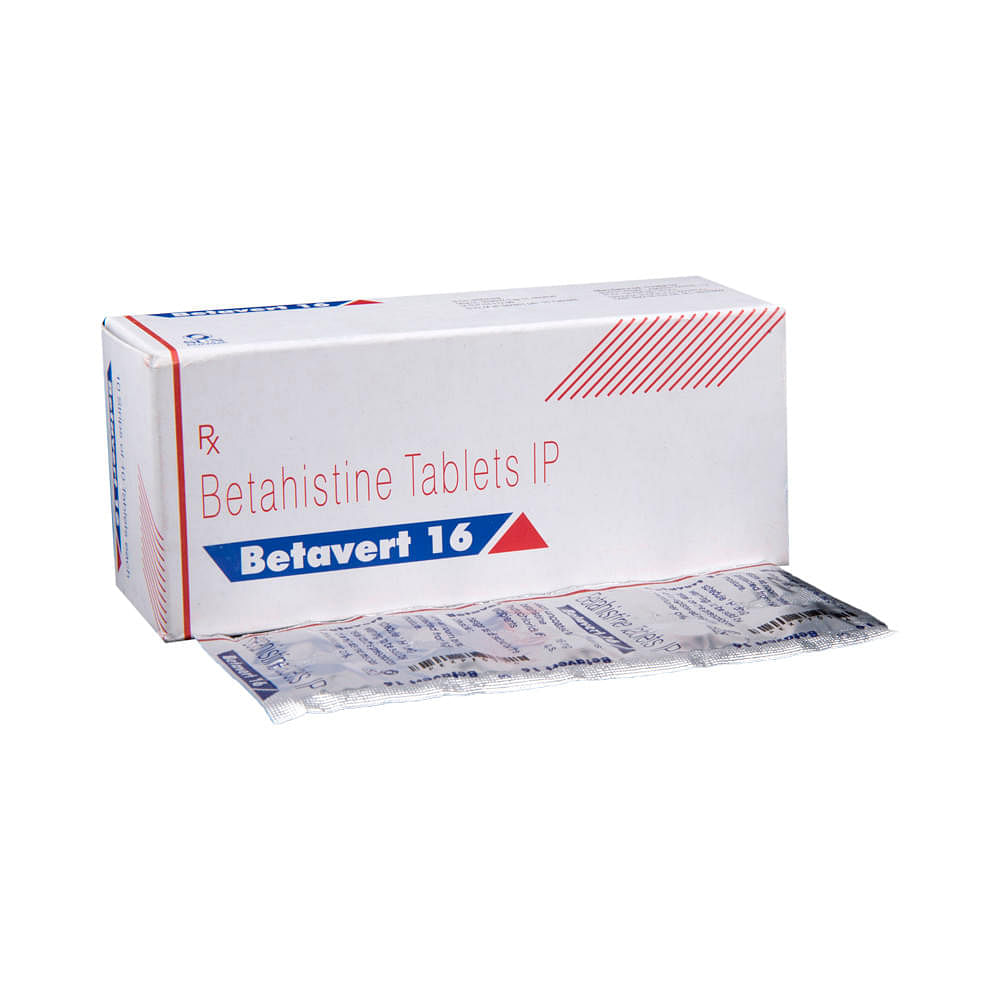
Betavert 16 Tablet
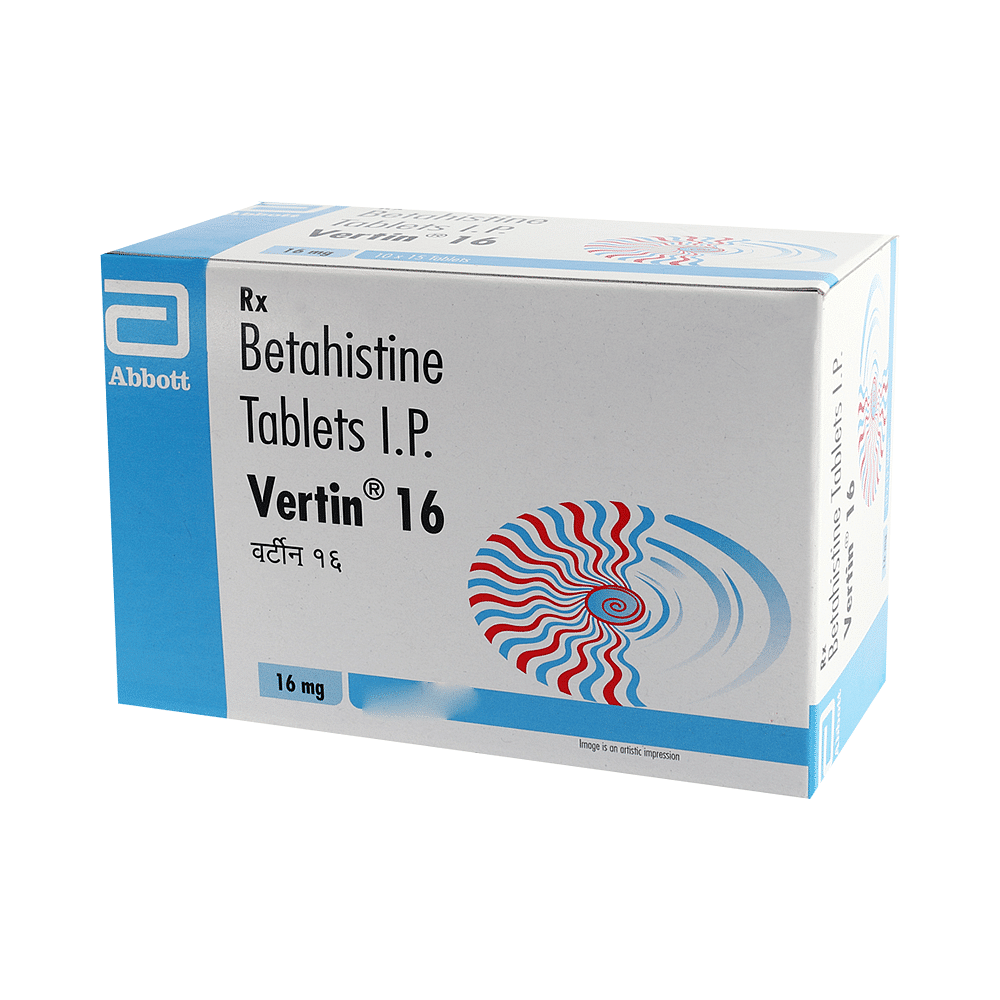
Vertin 16 Tablet
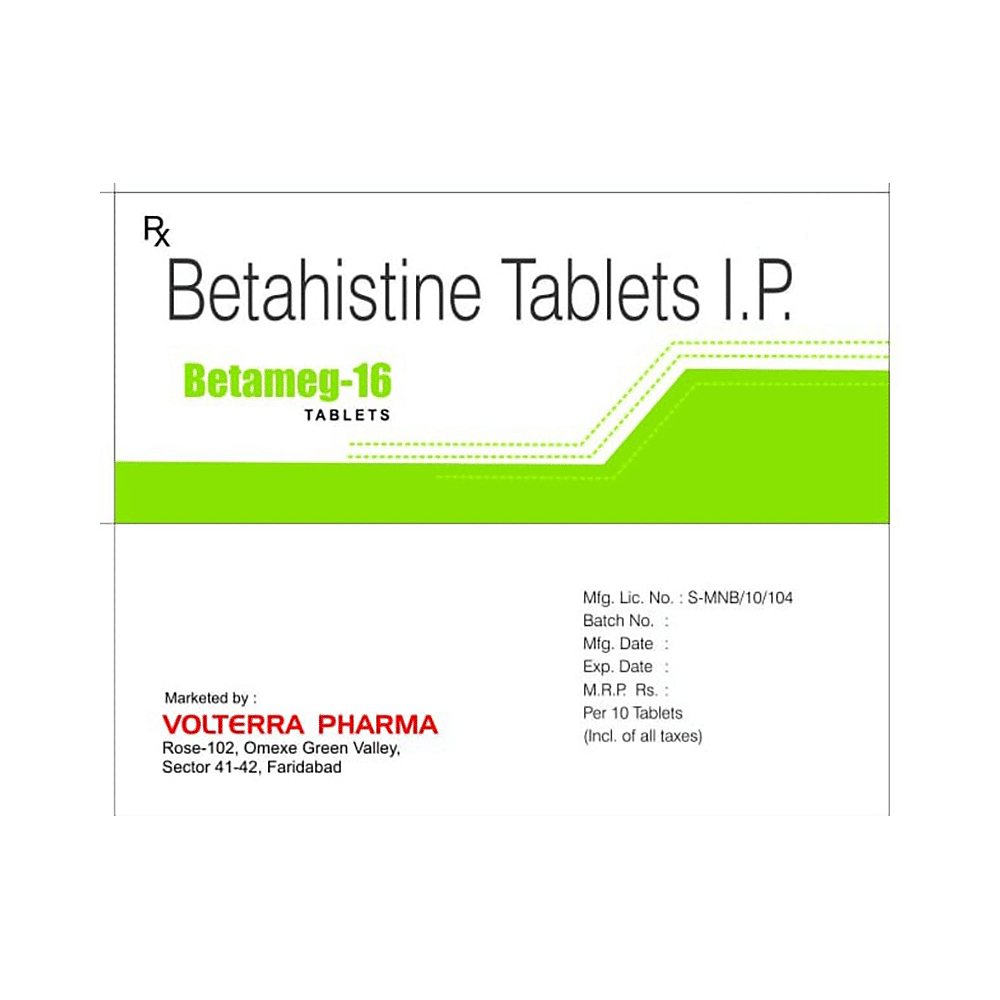
Betameg 16 Tablet

Vertivib 16mg Tablet

Ashist 16mg Tablet

T Hist 16mg Tablet

Vertipress 16 Tablet

Bell 16mg Tablet
Frequently asked questions
What is Meniere's disease? Does it go away?
Meniere's disease is a disorder affecting balance and hearing in the inner ear. It causes symptoms like vertigo (dizziness), fluctuating hearing, tinnitus (ringing ears), and pressure in the ears. Dizziness can also lead to nausea and vomiting. While there is no known cure for Meniere's disease, treatment focuses on managing symptoms and improving quality of life. Treatments may include medications, lifestyle changes, or other therapies tailored to each individual.
Is Vertiwell 16 Tablet effective?
Vertiwell 16 Tablet can be effective if taken as directed by your healthcare provider and with consistency. It's important not to stop taking the medication without consulting your doctor, as stopping it early might cause symptoms to return or worsen. If you experience improvement in your condition, continue using the medication as instructed by your doctor.
What are the triggers for Meniere's disease?
Triggering factors for Meniere's disease can include stress, fatigue, overwork, emotional distress, and other health conditions. Certain foods like dairy products, caffeine, alcohol, and high-sodium meals may also trigger symptoms in some people. A low-salt diet (2 grams per day) might help manage vertigo associated with Meniere's disease.
What if I forget to take a dose of Vertiwell 16 Tablet?
If you miss a dose of Vertiwell 16 Tablet, consider taking it as soon as you remember. However, if you are close to your next scheduled dose, skip the missed dosage and take the following dose at the designated time. Do not double the dose to make up for the skipped one because this can increase the chance of side effects.
Is stress a reason for vertigo?
Stress can indeed contribute to vertigo. It may exacerbate other forms of vertigo, but it won't directly cause it on its own.
What are the causes of vertigo?
Vertigo can be caused by sudden drops in blood pressure or dehydration. Some people experience lightheadedness when transitioning from sitting or lying down to a standing position. Other factors that may contribute to vertigo include motion sickness, certain medications, and inner ear issues (such as Meniere's disease or acoustic neuroma). It is important to note that some instances of vertigo can also indicate underlying conditions like multiple sclerosis or head trauma.
How long should Vertiwell 16 Tablet be taken?
Treatment duration for Vertiwell 16 Tablet may vary depending on the individual. Some individuals respond quickly to treatment, while others may take a bit longer. Consistent medication adherence and patience are crucial, and it's best to consult your doctor if you have any uncertainties.
What are the common side effects of Vertiwell 16 Tablet?
Vertiwell 16 Tablet can cause mild stomach issues such as vomiting, abdominal pain, bloating, and a feeling of fullness. Consuming the medication with food may reduce the likelihood of experiencing these side effects.
Is Vertiwell 16 Tablet effective?
Vertiwell 16 Tablet can be effective if taken as directed by your doctor and at the recommended dosage. It is essential not to stop taking it prematurely, as this may lead to a worsening of symptoms. If you experience any improvement in your condition, continue using the medication as instructed by your doctor.
What if I forget to take a dose of Vertiwell 16 Tablet?
If you miss a dose of Vertiwell 16 Tablet, try taking it as soon as you remember. However, if you are close to your next scheduled dose, skip the missed dosage and take the following dose at the designated time. Do not double the dose to make up for the skipped one because this can increase the chance of side effects.
How long should Vertiwell 16 Tablet be taken?
The duration of treatment with Vertiwell 16 Tablet may vary based on individual response and medical advice. Your doctor can guide you on the recommended course of treatment, taking into account your specific circumstances and needs.


